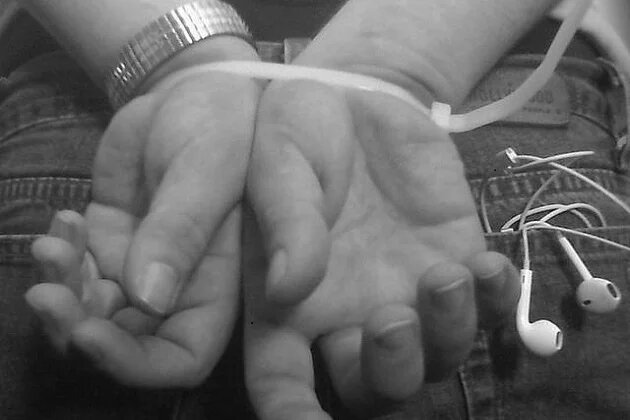
The recent arrest of ten Boğaziçi University students following a quarrel between two student groups on campus has put the spotlight on the situation of student detainees in Turkey.
On March 19, a group of students who were members of the Society for Islamic Research distributed sweets on the Boğaziçi campus after 46 Turkish servicemen were killed during the military operation in Afrin. Another student group objected to the event, holding a banner that read "No sweets for invasion and massacre”. After President Erdoğan mentioned the event in a public speech, calling the protestors “communist, traitor terrorist youth, who should not be granted the right to education at universities", the police started to raid dormitories and houses of the students and took 16 of them into custody. Last week, the state prosecutor decided to put 10 of them under arrest on the grounds of “terrorist propaganda”. Not only did the event illustrate yet another example of how political opposition is being criminalized, it also shed a light on the problem of imprisoned students. Their number is now higher than ever before in Turkish history.
According to the Ministry of Justice in response to a parliamentary question of CHP MP Gamze Akkuş İlgezdi, there were 69.301 students in Turkish prisons in October 2017. This equals almost one third of the total prisoner population in Turkey. The Ministry of Justice figures also revealed that the number of imprisoned students was 2.776 in May 2013, which means that within a time period of less than five years, the number of imprisoned students increased almost 25 times. The current estimate is even higher, exceeding onehundredthousand if those students are factored in who remain in pre-trial detention, without an official arrest order.
The current arrests follow a certain pattern: students who express critical thoughts about ongoing domestic or international political developments and their discontent with the ruling party are facing sentences on the grounds of terrorist propaganda or supporting terror organizations, and defamation of state organs such as the president. What qualifies as a terror-crime however, varies; whistling a Kurdish song, dancing the traditional Halay, or making anti-war demonstrations have all led to arrests.
A professor, who has worked as a volunteer guardian for imprisoned students for many years, said, that the difficulties which imprisoned students face in jail have become more severe since the state of emergency has been in place. According to presidential decree No. 677, which entered into force in November 2016, those who are detained or convicted due to membership of a terror organization are deprived of their right to enter exams, as long as the state of emergency continues. It was always difficult for student prisoners to enter exams, due to poor organization of transportation from prisons to universities. Even if transportation was provided, the costs were often too high to afford. The situation is harder for the majority whose educational and penal institutions are located in different cities. Financial difficulties are hindering students to pay school fees and other related expenses, since students do not receive scholarships after arrest and are naturally not able to work. They fail in several courses which require compulsory attendance which eventually results in dismissal, if they are not already dismissed on the grounds of a disciplinary punishment, which generally follows the arrest. Under the state of emergency, it is even difficult to get books into prisons. Even if some students are not sentenced in the end the pre-trial detention periods are so long that students remain away from their education for years, without being able to graduate, receive diplomas and acquire a profession. And it remains to be seen, if and how the social stigma will have an effect on them afterward.
In the meantime, an open letter was published on the occasion of the arrest of the Boğaziçi students. More than 2.100 academicians from all over the world, including Judith Butler, Nancy Fraser, Michael Hardt, Partha Chatterjee, Martin van Bruinessen and Etienne Balibar, have signed the letter which not only expresses solidarity with the students, but also calls upon “the Turkish government to immediately release all student detainees”.


